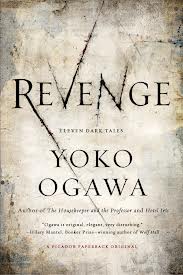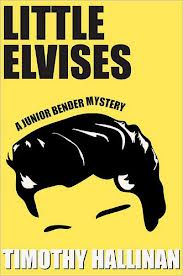Man in the Empty Suit by Sean Ferrell
 Wednesday, February 6, 2013 at 1:12PM
Wednesday, February 6, 2013 at 1:12PM 
Published by Soho Press on February 5, 2013
It's difficult to pull off a Grandfather Paradox story, although many have tried. The paradox is often resolved by having the paradox-creating event give birth to a parallel universe, which strikes me as a copout. Kudos to Sean Ferrell for constructing an intricate time travel mystery thriller that puts a fresh spin on a familiar theme. I'm not sure Man in the Empty Suit resolves the paradox (although, to be fair, a true paradox is by definition irresolvable), but Ferrell uses it to advance an interesting, offbeat story.
Ferrell's version of Dr. Who's TARDIS is a raft that floats through time. Every year on his birthday, a time traveler attends a party on April 1, 2017 at the Boltzmann Hotel in a decayed, dystopian Manhattan. He is the only person in the ballroom, but since he does this as a tradition, there are many of him, one from each year in which he has made the birthday trek. He names his different selves -- Yellow, Seventy, the Nose, the Drunk, the Inventor -- although we never learn the traveler's true name. His younger selves ("the Youngsters") mock his older selves ("the Elders") although most of his selves of every age devote the evening to drunkenness. The alcohol fueled fuzz assures that the party will seem fresh every year.
The story begins on the traveler's 39th birthday. The party proceeds as expected until the next oldest version of the traveler dies in an elevator. The Elders don't understand the paradox of their continued life after their obvious death. They do understand that their memories are becoming unreliable. The 39-year-old traveler (known at that age as the Suit) is tasked with investigating. The Elders fear that if the Suit catches up in age with his next older self -- the one who dies -- without solving the puzzle, all his older selves will cease to exist. One paradox triggers another as the Suit tries to discover the truth, and the appearance of a woman named Lily at the party only deepens the mystery.
If the first section of Man in the Empty Suit seems odd, the next section -- with a lie collector and liquid memories and books that know where they want to be shelved -- enters a whole new realm of strangeness. The section largely becomes Lily's story. It isn't conventional science fiction -- nothing about this novel is conventional -- but it contains moments that are emotionally affecting. The last act returns to the party and the paradox, leading to a conclusion that teaches the traveler something about life -- and how to live it.
Apart from telling an entertaining (if labyrinthine) story, the novel's value lies in its larger themes. Ferrell serves up a perceptive take on how we perceive ourselves at different stages of our lives. The Youngsters see the Elders as decrepit; the Elders see the Youngsters as childish. As the traveler transitions from being a Youngster to being an Elder, he appreciates that what he once saw as the slovenly appearance of the Elders is actually a sign of comfort, a version of himself that is no longer concerned with superficial appearance.
Man in the Empty Suit also addresses the need to connect with other people. The traveler attends the party every year so that he can be with himself (literally), but he's always alone, fighting to be heard in a chorus of identical voices. Both the traveler and Lily deal, in their different ways, with the burden of expectations, although the traveler's are self-imposed. How they cope with those burdens and what the traveler learns from his ordeal make this a novel of psychological growth -- almost a coming-of-age-late-in-middle-age novel. I'm not sure the story entirely makes sense, but I liked the way Ferrell played with it.
RECOMMENDED



